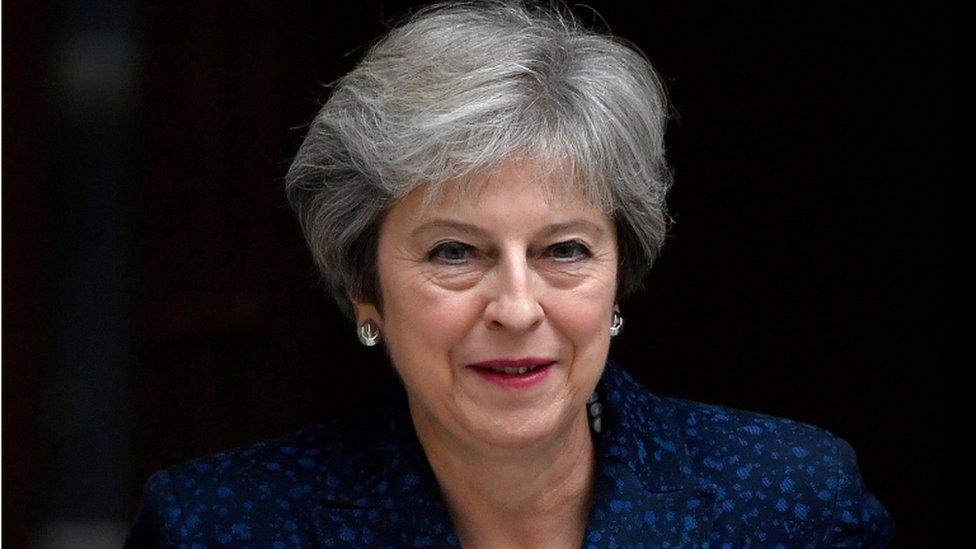Theresa May: Leaders have 'a moral duty' to act on slavery
- Published

Theresa May will tell world leaders at a conference they have "a moral duty" to speak for victims of modern slavery.
"No leader worthy of the name can look the other way while men, women and children are held against their will," the prime minister is expected to say.
Mrs May will announce 拢10m to reduce exploitation of children in Africa's agricultural industries.
She will also say big businesses should produce transparency statements on modern slavery.
The prime minister - who is due to step down in July - will be addressing the United Nations' International Labour Organisation in Geneva.
She is expected to say: "Modern slavery reaches into every corner of our lives - in the clothes we wear, the food we eat, the services we pay for.
"Yet for many years it seldom captured the world's attention or outrage - allowing those who trade in human misery to quietly continue their work, and allowing all of us to look the other way as we benefitted from the forced labour of this growing underclass."
What is modern slavery?
Modern slaves in the UK, often said to be hiding in plain sight, are working in our nail bars, on construction sites, in brothels, on cannabis farms and in agriculture.
Traffickers are using the internet to lure their victims with hollow promises of jobs, education and even love.
Albania, Nigeria, Vietnam, Romania and Poland are the most likely countries of origin, but some victims are from the UK itself.
There is no typical victim. They can be men, women or children of all ages but it is normally more prevalent among the most vulnerable, minorities or socially-excluded groups.
Many believe they are escaping poverty, limited opportunities at home, a lack of education, unstable social and political conditions or war.
But their slave masters are usually out to make financial gain.
Sexual exploitation is the most common form of modern slavery reported in the UK, followed by labour exploitation, forced criminal exploitation and domestic servitude.
In 2014, the Home Office estimated there were between 10,000 and 13,000 potential victims in the UK - just 2,340 of those were officially reported and recorded.
Sources: and
Mrs May will announce plans to create a new international modern slavery and migration envoy to help co-ordinate the UK's efforts with other nations.
As Home Secretary, Theresa May introduced the Modern Slavery bill which became law in 2015.
The legislation included tougher sentences and more help for people forced into labouring, domestic servitude, sex work and other coercive tasks.
MP Frank Field, who led a recent review into the impact of the Modern Slavery Act, said there had been "too few convictions" and called for the laws to be strengthened.
Mrs May is making a series of policy announcements in her final weeks as she seeks to return to the "burning injustices" agenda she set out when she first entered Downing Street in 2016.
- Published10 August 2018